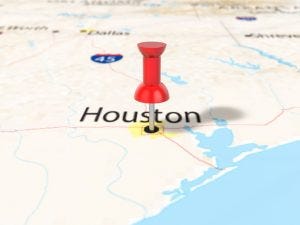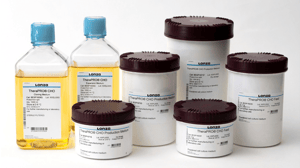The combination of cold-chain logistics and biostorage places Cryoport in good stead for the arrival of allogeneic cell therapies, an analyst says. Cryogene’s proximity to Lonza’s Houston site is also a boon.
Cryoport, a provider of temperature-controlled logistics solutions specifically in the cell and gene therapy space, paid $20.5 million (€18.3 million) in cash for Houston, Texas-based biostorage and biobanking firm Cryogene.
Cryogene brings a 21,000 square-foot biostorage facility – which specializes storing biological specimens, materials and samples – to Cryoport, and will be immediately accretive to Cryoport’s earnings. Cryogene reported revenues of approximately $3.9 million in 2018, according to an SEC filing.

Image: iStock/JulyVelchev
Jerrell Shelton, CEO of Cryoport, said the bolt-on will become an important part of Cryoport as it increases its temperature-controlled bioservice capabilities. “By adding Cryogene to its family, Cryoport is further building out its ecosystem to better serve the life sciences and, especially, regenerative therapy.”
Cryoport bonuses: Short-term Lonza, long-term allogeneic
Jefferies analyst Brandon Couillard applauded the deal, saying that Cryogene brings the firm “a more end-to-end solution to augment its leading temperature-controlled logistics offering,” in a note.
“We see the deal as a natural fit that gives Cryoport a more complete end-to-end solution for the regenerative medicine market.”
He added the proximity of Cryogene’s facility to Lonza’s recently opened Houston site is likely to support “significant future growth.” The site opened its doors in April 2018 and is the world’s largest dedicated cell and gene therapy manufacturing facility.
But in the longer-term, Couillard suggested the acquisition will place Cryoport in a good position to capitalize on the advent of allogeneic cell therapies, as, he noted, off-the-shelf therapies could evolve the current biostorage model “into a more comprehensive bio-services model over time, with storage sites acting as fulfillment centers.”
He continued: “Over time, we could envision Cryoport operating a network of small/mid-sized biostorage sites, making it a more critical supply chain partner for cell and gene therapy clients. For now, we like the deal: profitable asset with good growth and low downside risk. But if the market develops, we see the combo of logistics and biostorage as a much more formidable model that will be tough to replicate.”

schedl_b_and_w.jpg?width=100&auto=webp&quality=80&disable=upscale)


schedl_b_and_w.jpg?width=400&auto=webp&quality=80&disable=upscale)





